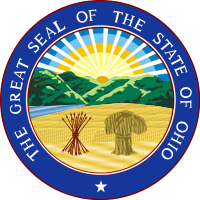
Fast, affordable Internet access for all.

Consolidated Cooperative (CC) of Delaware, Ohio, plans to bring Fiber-to-the-Home (FTTH) services to rural central Ohio residents as soon as this summer.
Multi-Service, Multi-Community
In March, CC announced it had changed its name from Consolidated Electric Cooperative to better reflect the organization's expansion of services. In addition to electric service, CC also provides natural gas, propane, community solar, and soon they will offer residential fiber optic connectivity. CC’s board came to the decision to offer fiber after a host of members said they needed a solution for their current underwhelming Internet access and incentives to keep businesses buzzing in their area.
CC has served rural and farming communities north of Columbus since the 1930s. It currently provides electric in Delaware and Morrow counties, as well as slices of six other surrounding counties. It also provides some fiber access to area school districts and businesses through its brand Enlite, partially by harnessing CC’s electric infrastructure.
Last October in a Facebook post, CC cited a member survey wherein “many members in our serving area report insufficient access to reliable Internet service.” The co-op says it's broken ground on constructing its new fiber network earlier this spring, and will begin offering services sometime in June for select high-need clients in western Delaware County. Consolidated Fiber offers an interactive map of the anticipated coverage zone, with color coding that indicates the status of each area.
Gauging the Scope of Interest
CC decided to roll out Consolidated Fiber as a pilot project starting this summer. From there, it says its construction priorities for access to the fiber service is demand-based, and so the cooperative is encouraging interested parties to send inquiries via Consolidated Fiber’s website and gather their neighbors to voice their need. Co-ops often begin their expansion to fiber service as pilot programs, and grow subsequently based on how much membership demand they encounter. Pilot projects allow co-ops and municipals the opportunity to discover potential problems and to drum up interest in better connectivity, which improves results with a larger deployment.
There are 39 proposed fiber service zones currently in pre-registration, with more than 3,000 registered respondents interested in the service. Consolidated Fiber offers plans ranging from 100 Mbps for $60 a month, to gigabit service for $100 a month. All fiber service will have symmetrical download and upload speeds.
CenturyLink currently offers DSL service in some spots in Consolidated Fiber’s proposed coverage area, along with ISPs such as Spectrum and Frontier in other towns. Rural electric co-ops have recently started venturing into high-speed Internet to serve members in locations where national ISPs don't find enough profitability to upgrade to high-quality connectivity. Electric cooperatives are well positioned to do so, as they often already have key infrastructure in place and a membership, to which they are accountable, in need of higher quality Internet access.
 Bringing and Keeping Jobs in the Area
Bringing and Keeping Jobs in the Area
A local ABC affiliate, who spoke to the economic development director for CC, reports that setting up FTTH will cost around $35 million over the next few years; but the project aims to ultimately spur economic development in the underserved region. Community-run networks typically offer higher speed Internet access in rural communities than incumbent ISPs. They can help bring better work options to locals, as well as potentially attract new business and expand existing ones.
Some Ohio lawmakers too recognize high-speed Internet access to rural communities as an economic investment designed to keep businesses in rural towns. Representatives in the statehouse proposed a bill this session to infuse $100 million in cash grants over the next two years in order to expand high-speed Internet service across Ohio. Consolidated Cooperative's CEO Phil Caskey said in a recent Columbus Business First article that the bill would allow rural residents to become part of the modern workforce:
"Increasingly employment is online, medicine is moving online, education is moving online," Caskey said. "So the rural children are going out to college or trade school and thinking about quality of life. If they don't have it in those rural areas then they’re not going to stick around."
House Bill 378 passed the House with strong bipartisan support in April, and is currently in committee in the Senate, where the legislature meets throughout the year.
Local coverage on the bill and on CC's project:
